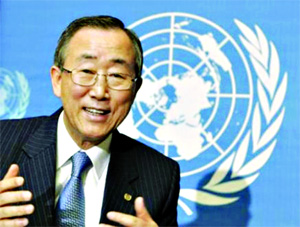M. Shahidul Islam in Toronto
When one is not sure about where to go, all roads seem hazardous. If the destination is known, any road may prove good enough to reach the destination. The call by the BNP chairperson and the 19-party alliance leader, Khaleda Zia, on Tuesday to sit for a dialogue and resolve the issue of holding an inclusive election sooner has once again reminded all that the nation has a destination to reach at.
That destination lies in re-installing peace and stability by holding a fair and inclusive election to ensure democratic governance and rule of law.
If this latest call of the BNP chairperson once again hits the deaf ear of a regime that is devoid of legitimacy due to the polling of January 5 not being inclusive and fair, Mrs. Zia told categorically what the response of the opposition is going to be. “We’ll not wait indefinitely for them (government) to facilitate a dialogue and an acceptable resolution of the crisis,” she warned. Hence, time is of more essence.
That leads one to two of the most important hypotheses brewing out of the prevailing situation. First: What the heck the opposition can do if the government does not facilitate a dialogue and resolve the crisis? Second: Can international pressure compel the government to compromise on this crucial and protracted matter?
Heightened HR violation
Let’s deal with the second hypothesis first. Khaleda Zia has already urged the UN to intervene in stopping the extra-judicial killings and the kidnapping being conducted by a section of the security apparatuses in collusion with ruling party arms cadre. The rights violations have attained such a height that the Human Rights Watch (HRW) has already portrayed the scenario as ‘dissipating.” Nearly 300 political killings have already been recorded in the 30 days from late December 2013 to late January 2014.
This call to the UN of the BNP chairperson comes on the heel of the UN, the Commonwealth, the USA and the EU having recognized the unacceptability of the January 5 election and their repeated calling for an inclusive re-election sooner. To think that the global institutions and the Western regimes will sit on hands too long to allow the Hasina regime to bulldoze its own citizen to stay on power undemocratically is an assertion not supported by many instances.
We also know, already there are discussions in the Western capitals that some sort of punitive measures against the incumbent Bangladesh regime, as well as its business and bureaucratic oligarchs, will ensure the return of the democratic governance, rule of law and the much needed political stability which are too vital for regional and global peace. The Foreign Policy magazine has warned in its latest edition, “Bangladesh is crumbling.”
When an expert views the dynamic of a society from a neutral perspective, the outcome is often condescending and detestable to many. Democracy may be dead in Bangladesh, but the country is not. That leaves the way open for the leaders to get back to the basics of the nation’s fabrics; collapse of which makes the nation collectively collapsible.
Justice must move fast
To ensure that peace must be restored which needs the wheels of justice to move fast. Wheels of justice can’t move if the government lacks legitimacy, kills its people extra-judicially and denies rights of assembly and expression of opinion to political dissenters.
Now let’s deal with the first hypothesis: What the heck the opposition can do if the government remains stubborn and unresponsive? The first answer is: a Velvet revolution that the movement so far has been, without some violent exceptions, can turn bloodier. That will entail employment of more forces and more breaches of fundamental human rights.
The consequences are very much obvious and fathomable. In the end, the remaining fabrics of the state and the society will crumble automatically and the prediction of the Foreign Policy journal will prove true. Should that occur, the UN or some other external forces will have to come in to rein in the chaos, which some might prefer to cling onto power indefinitely, the people at large won’t tolerate.
It’s on such a context that the call of the BNP chairperson to the UN to intervene sooner, as a preemptive tactic to save the nation, makes sense. It’s always better to make a stitch on time to save nine more later, as saying goes.
Source: Weekly Holiday









